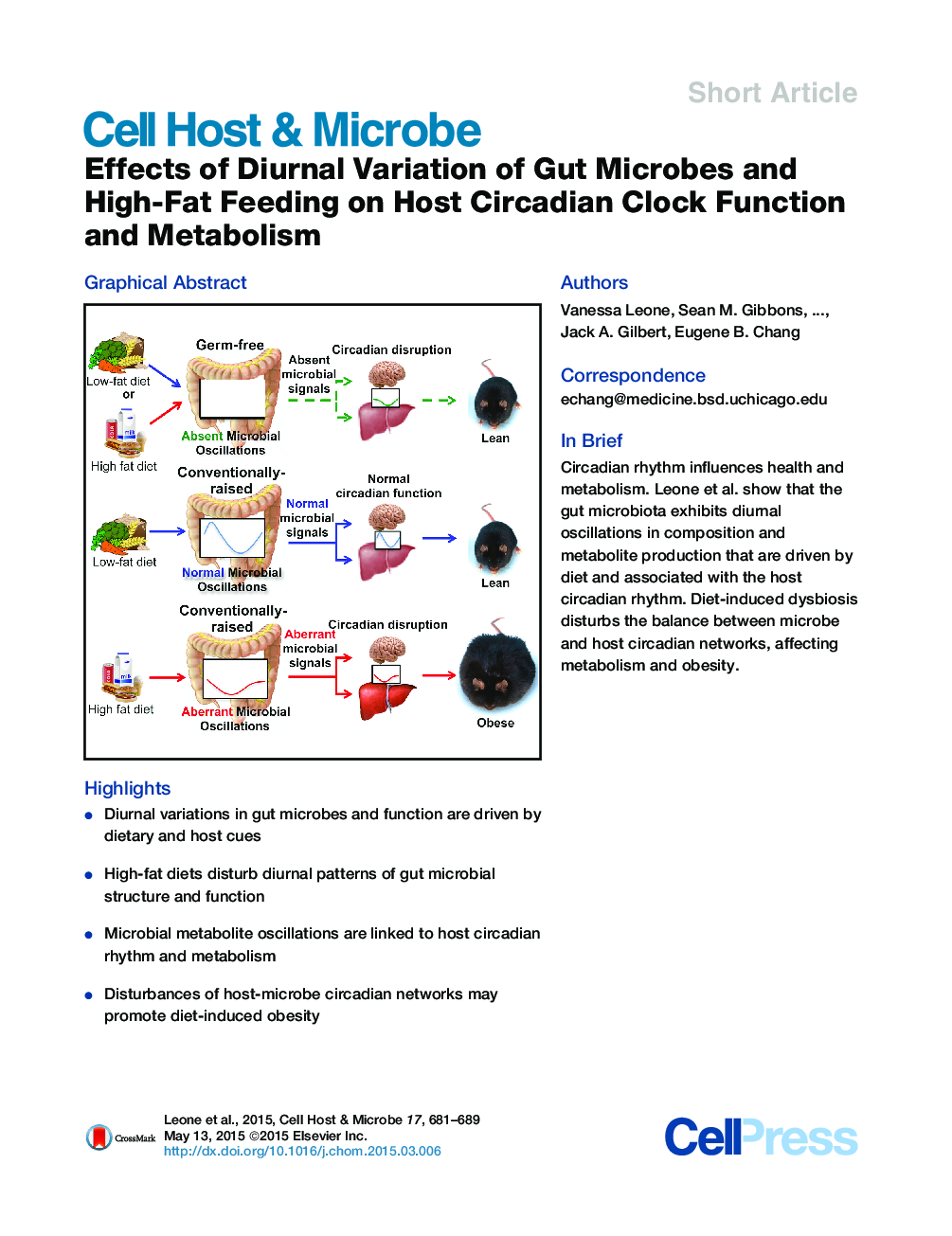| Article ID | Journal | Published Year | Pages | File Type |
|---|---|---|---|---|
| 4360979 | Cell Host & Microbe | 2015 | 9 Pages |
•Diurnal variations in gut microbes and function are driven by dietary and host cues•High-fat diets disturb diurnal patterns of gut microbial structure and function•Microbial metabolite oscillations are linked to host circadian rhythm and metabolism•Disturbances of host-microbe circadian networks may promote diet-induced obesity
SummaryCircadian clocks and metabolism are inextricably intertwined, where central and hepatic circadian clocks coordinate metabolic events in response to light-dark and sleep-wake cycles. We reveal an additional key element involved in maintaining host circadian rhythms, the gut microbiome. Despite persistence of light-dark signals, germ-free mice fed low or high-fat diets exhibit markedly impaired central and hepatic circadian clock gene expression and do not gain weight compared to conventionally raised counterparts. Examination of gut microbiota in conventionally raised mice showed differential diurnal variation in microbial structure and function dependent upon dietary composition. Additionally, specific microbial metabolites induced under low- or high-fat feeding, particularly short-chain fatty acids, but not hydrogen sulfide, directly modulate circadian clock gene expression within hepatocytes. These results underscore the ability of microbially derived metabolites to regulate or modify central and hepatic circadian rhythm and host metabolic function, the latter following intake of a Westernized diet.
Graphical AbstractFigure optionsDownload full-size imageDownload high-quality image (262 K)Download as PowerPoint slide
